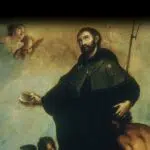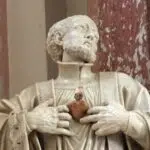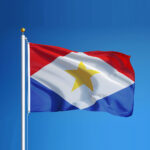The Day of Navarre is celebrated on December 3. It commemorates the death of Saint Francis Xavier and draws attention to the autonomous region’s culture. The Day of Navarre is a public holiday in Spain’s Navarre region but not elsewhere in the country. Many businesses and other organizations are closed. Many shops are closed. However, bakeries and grocery stores may be open. Public transportation may operate on a limited timetable. Parades and other public events may create local traffic congestion, particularly in town and village centers. Many activities take place in Pamplona, but some are also arranged in other cities and villages.
History of Day of Navarre
The present-day region was held by the Kingdom of Navarre, a former sovereign kingdom of Spain known until the final part of the 12th century as the Kingdom of Pamplona, after its capital and principal city, which ceased to exist in 1512. The province of Navarra covers around 4,000 square miles and includes Tierra de Allién Puertos, which is located on the northern approach to the Roncesvalles pass.
The Aragonese ruled Navarre until 1134 when the Navarrese proclaimed Garcia V the Restorer as king. In 1234, Sancho VII was replaced by his nephew Theobald I, Count of Champagne, and a succession of French monarchs governed the realm. Charles II the Bad rose to worldwide prominence due to his engagement in French politics and the Hundred Years’ War.
Navarre was ruled by John II of Aragon from 1425 to 1479, when he ascended to the throne of Navarre. During that period, the nation was divided between those who supported a union with France or Castile and those who favored independence from France. Ferdinand the Catholic captured the Spanish half in 1512, and it was formally annexed to the Castilian crown in 1515. French Navarre remained an independent kingdom until 1589 when it was re-annexed to France. Until the nineteenth century, Spanish Navarre maintained its identity, institutions, and law as an autonomous kingdom.
On April 7, 1506, Saint Francis Xavier was born in Javier, a small town in Spain’s Navarre area. He was ordained as a Jesuit priest and served as a missionary in China, India, Indonesia, and Japan. On December 3, 1552, he died in China and was canonized on March 12, 1622. The patron saint of the autonomous community of Navarre is presently St. Francis Xavier. Navarre is an independent community in northern Spain near the mouth of the Bay of Biscay. It borders the autonomous communities of Aragon, La Rioja, and the Basque Country on the land.
Day of Navarre FAQs
What is Navarre famous for?
Navarra’s natural beauty is a prominent emblem, but the area is most known for the running of the bulls in its capital, Pamplona, during the San Fermin Festival, which takes place every July.
What is modern-day Navarre?
Today, the Spanish autonomous communities of Navarre, Comunidad Autónoma Vasca, La Rioja, and the French community of Pays Basque form substantial sections of the old Kingdom of Navarre.
What language did Navarre speak?
Much of Navarre was Basque-speaking throughout the Middle Ages. The Navarro-Aragonese dialect was employed alongside French as the administrative languages.
Day of Navarre Activities
Attend a parade
Church services and religious parades honor the life of St. Francis Xavier. Attend parades and religious services held by servicemen or members of a uniformed organization.
Enjoy a paella with family or friends
Paella is one of the most loved dishes by locals, and the best representative of Navarre. It is a rice dish cooked in a pan over an open fire or oven. This dish can be found in any restaurant or bar in the region.
Watch a concert
You can watch concerts of local and traditional music. Find live classical concerts or get live stream details and tickets. Watch performances of your favorite classical music or local artists.
5 Interesting Facts About Basque Culture
The Basque language has seven different dialects
Spanish, often known as Castellano, is one of the numerous languages spoken in Spain. Catalan, Galician, and Basque are co-official languages — Basque has seven distinct dialects spoken throughout the region.
One of the oldest European ethnic groups
Historians think that the Basques lived in the northwestern portion of Europe before the Indo-Europeans arrived some 5,000 years ago.
One of the oldest-living languages
Since the Basques are the oldest ethnic group, the language used — Euskera is also the oldest that is still spoken today.
Folklore plays an important cultural role
Folklore is immensely significant to the Basques, as it is to many other cultures, and many of its tales and legends are being commemorated today.
The cuisine is a national pride
Food is very important in Basque culture, which is partly why the region is so well recognized for its cuisine and many Michelin-starred restaurants.
Why We Love Day of Navarre
It pays tribute to the history
The Day of Navarre honors the history and culture of Spain's northernmost territory. The day celebrates its distinct history and culture, particularly in terms of language, food, and rituals.
Time to learn
It is a perfect time to learn more about our ancestry. Learning our ancestors' history gives us a better appreciation of the struggles they experienced, and it frequently generates more profound affection.
Make community stronger
This day can make us a stronger community. Strong communities are crucial because they offer us a source of social connection and a sense of belonging.
Day of Navarre dates
| Year | Date | Day |
|---|---|---|
| 2025 | December 3 | Wednesday |
| 2026 | December 3 | Thursday |
| 2027 | December 3 | Friday |
| 2028 | December 3 | Sunday |
| 2029 | December 3 | Monday |



















